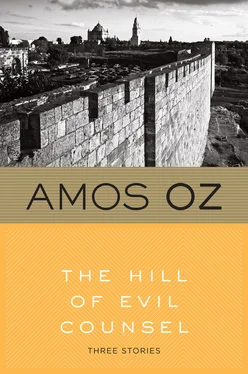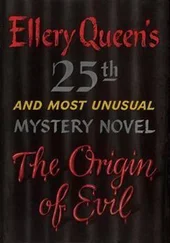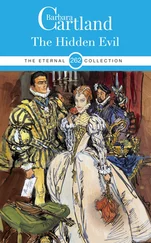"Calm down," Father begged.
And as an afterthought he added:
"We haven't been out for ages. Why don't we go to the movies and sit in a café like civilized human beings. Life must go on, after all."
Early on Sunday morning, Mother went down into the garden carrying a tub of washing. I followed her downstairs without her noticing. The morning sky was grubby and overcast, as if autumn had arrived. But I knew these mornings; I told myself that it wasn't autumn yet, and that actually it was a sure sign of a blazing-hot day. I noticed a quick tremor run through her neck and shoulders. She stood all alone in the low gray light, which imparted a bluish, doubt-ridden hue to the stone, the trees, and the asphalt. It looked as though the light were a stream, and the houses on either side were its banks in a fog, and everything in between was being swept away by the leisurely current. The garbage cans, waiting along the sidewalk, were in the stream. A smell of fish. The smell of the oleanders. And a faint, almost pleasant reek was also in the stream. Not a stream. A ripple of light. A veil. Somewhere nearby there lived a persistent cuckoo that never stopped repeating a single urgent phrase as if it were impossible to remain silent. On the perches of the dovecote stood three lazy pigeons, exchanging views and opinions. They totally disregarded the cuckoo's interruptions.
My mother stood barefoot on the carpet of pine needles the shade of the restless trees, pegging the sheets up on the clothesline. There were moments, when she stood with her arms outstretched, when I had difficulty restraining myself from running and suddenly hugging her from behind and telling her secrets about Bat-Ammi and the John of Gischala plan. Far away, a radio was playing light morning music. My mother could sing, but she wasn't singing. The grocer, the greengrocer, and the barber had rolled up their shutters and opened their shops. Only Mrs. Vishniak the pharmacist was late getting up, as usual. The greengrocer was setting out boxes of apples, onions, eggplants, and pumpkins on the sidewalk. The wasps swooped down angrily. In the window of the grocer's shop was a flypaper covered with dead flies, and a jar of different-colored hard candies, two for a mil. There was an olive tree between the two shops. A flowering creeper clasped its branches with a blue flame. From a distance it looked as though the olive tree had gone out of its mind and set itself on fire. Women were draping their bedclothes over their balcony railings to get rid of the night smells. The quilts and pillowcases gave Zephaniah Street a poignant air of gaiety; it was impossible to banish thoughts about night and the neighbors' wives at night among the quilts.
On the deep window sills, among the asparagus ferns growing in old cans, stood sealed jars in which cucumbers were being pickled in a pale-green liquid with bay leaves and parsley and little cloves of garlic. When the Hebrew state was finally established, we would all get up and go to the valleys and the open fields. All summer long, we would live in watchmen's booths in the orchards. We would gallop on our horses to the springs and rivulets, lead our herds and flocks to pasture. We would leave Jerusalem to its fate at the hands of the pious.
I carved strips of pine bark with a penknife borrowed from Ephraim, to add another frigate to the fleet of warships that was riding at anchor on a shelf in my room, waiting for the great day.
Among the dead pine needles in the garden sprouted ears of wild corn; they, too, were turning yellow, as if trying to assimilate to the dry thistles. There were broken bottles, scraps of newspaper, blackening boards under one of which I once found a tortoise withdrawn in terror and I waited for ages for it to calm down and put its head out until I couldn't wait any longer and picked it up and it turned out that there was no tortoise only an empty shell and the tortoise was long dead or else it had gone off in a huff.
My frigate snapped in two. I was bored with the fleet. I started to carve my name on a rusty can. The penknife made a grating sound on the tin, and Mother, the washtub clasped to her hip, turned to me in exasperation and begged me to stop driving her mad so early in the morning.
"I'm working," I said.
"You're a mad child, that's what you are, and you're trying to drive me mad, too."
"You're just working yourself up, Mrs. Kolodny," 1 said politely, like Father.
And to myself I added: We must always keep control of our temper. Not be drawn into unnecessary conflicts. We have the initiative and they are gradually losing their balance.
"I'm going to rest," Mother said. "I'm hot. If anybody calls, tell them I'm not at home."
After breakfast, one of the most decisive battles for Berlin was engaged on my window sill. The armored spearheads of the Hebrew, Russian, and American columns were penetrating the city from the forests and the lakes, snapping up the remains of the Nazi divisions, crushing the barricades under their tracks, shattering the buildings with their gunfire. Nine more days and the summer holidays would be over and the fifth form would begin. By then the foe must be vanquished. The monster must be bearded in its lair and made to surrender unconditionally.
Helena Grill appeared on the balcony opposite. She began collecting the bedding that was spread on the railing. Inside her nightdress, through the unbuttoned dressing gown, I could see her strong breasts. I struggled with all my might to ward off Ephraim's rough hands. The Grill boys must have gone down to the Tel Arza woods again, to see if the leopard had got caught in the clever trap they had set for it before the curfew. Comrade Grill was driving his green Fargo bus on the number 8 route toward Mekor Hayyim, picking up passengers at the bus stops and demanding that they step to the rear, please. He had a ticket punch in his bus and a set of little silvery Panpipes: you put the various coins in at the top and slipped the change out at the bottom with a flick of the finger. I was enchanted with the punch and the silver Panpipes. If Bat-Ammi agreed to marry me after the victory, I would let her feel me with her finger through my gym shorts on condition that I could play her father's Panpipes, feed different-sized coins in at the top, and take them out again at the bottom, punch star-shaped holes in the tickets. Helena Grill was still standing on the balcony. She was watering the geranium that grew in a rusty olive can. The water from the watering can looked like slivers of glass caught by the light. She was singing to herself in Polish; the song sounded to me full of longing and remorse.
Meanwhile, Father's two assistants, Abrasha and Lilienblum, arrived, bringing the morning paper. I declared a ceasefire in the suburbs of Berlin and ran to see what the headlines said. The newspaper told of the extensive searches mounted by the British all over the country and of bloodshed in one of the kibbutzim: the pioneers had forcibly resisted the confiscation of their defensive arms; two had been shot and wounded and many others had been interned in detention camps.
Father placed a glass of black coffee before Abrasha and handed Lilienblum a glass of cafe au lait. Meanwhile, he turned the newspaper over and scrutinized the obituary column minutely, sighing as he did so. Then he took off his glasses, suddenly thrust aside his accounts and the remains of his breakfast, caught a tottering yogurt pot just in time, and at once stood up and suggested that they get to work. It was nearly half past eight.
Unless, of course, he said, anyone wanted some more coffee.
I followed them down to the printing press in the basement. I knew that before the curfew Father had hidden the seditious pamphlets in a sealed can and sunk it to the bottom of a tub of printer's ink. I wanted to see with my own eyes how they would bring this submarine to the surface and where they would put it next. But Father reflected and decided not to change the hiding place, because it had not failed him. He switched on the electric motor. At once he switched it off again. He carefully checked the pivots and the rollers. He squeezed a few drops of oil onto the pistons. Then he started the motor again and turned to his composing desk.
Читать дальше











